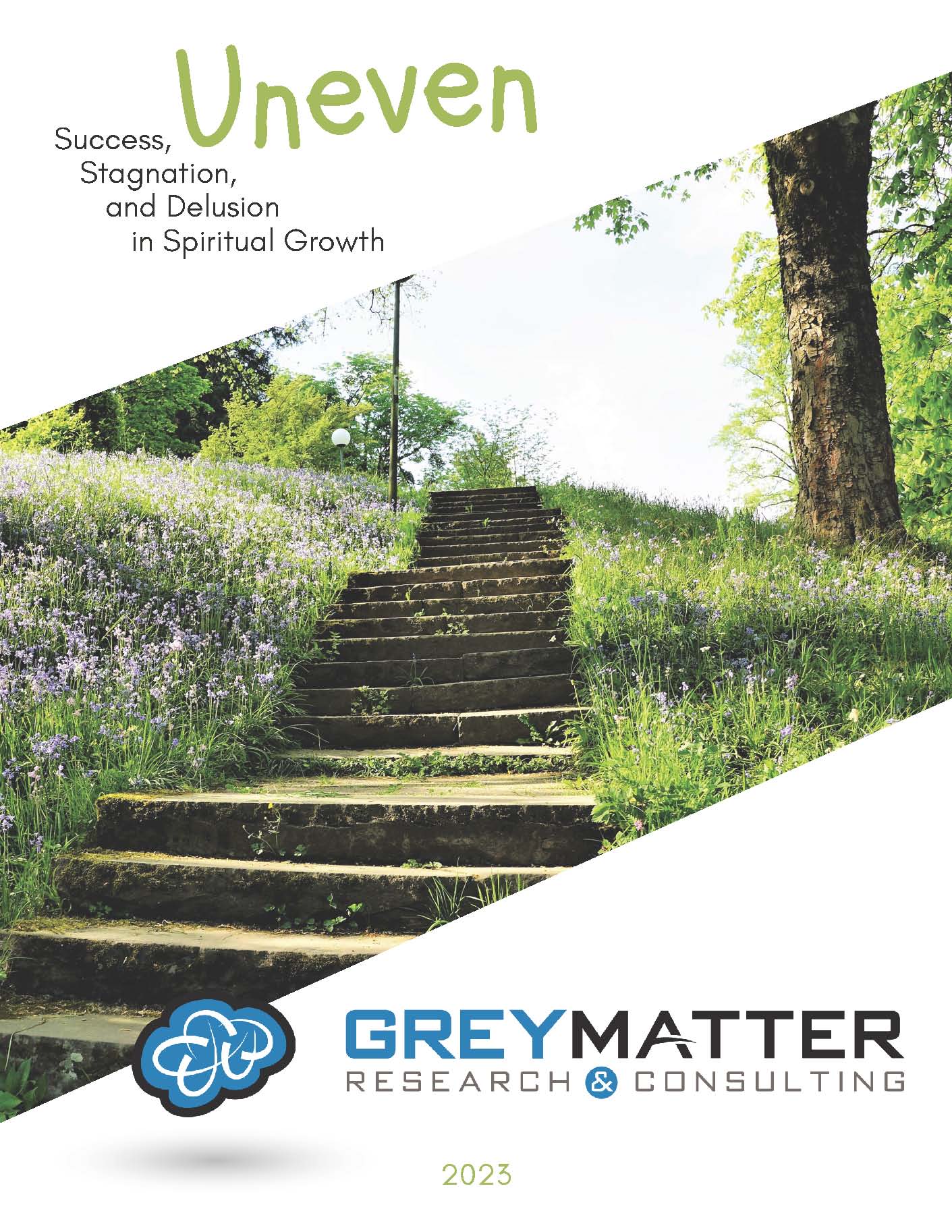
Evangelicals and Growth
Too often, spiritual growth is measured by activities – how often one prays, reads the Bible, etc. It’s far more complex than that.
Spiritual growth and maturity are a mix of activities, attitudes, knowledge, submission, and other factors. Working with Pastor Bill White of Christ Journey Church, who last year released the book Mature-ish about the ten stages of a believer’s spiritual journey, Grey Matter Research queried over 1,000 evangelical Christians about their spiritual growth and maturity. The result is our report Uneven: Success, Stagnation, and Delusion in Spiritual Growth.
A Mixed Bag
The spiritual maturity of American evangelicals is a mixed bag. Just a few examples:
Success
- There is an undeniable correlation between being regularly encouraged to read the Bible and actually reading it. The same is true for meeting frequently with a spiritual mentor and having greater spiritual engagement. Encouragement and accountability matter.
- One-third of evangelicals are highly engaged spiritually. They frequently read and study the Bible, pray, attend worship, and participate in a small group.
- Church lay leaders are substantially more advanced and engaged spiritually than are non-leaders in nearly every way. Churches have done well in engaging more mature people for leadership.
Stagnation
- Less than 1% of adult evangelicals came to their beliefs in the last year.
- Only 33% of evangelicals are highly engaged spiritually. This means one-third of all lay leaders in churches have moderate or low levels of engagement.
- There is a lack of intentionality in personal evangelism. Just 10% of believers feel strongly that they intentionally seek out relationships with non-Christians for the purpose of leading people to Jesus.
- When they displease God, 82% repent, ask God for forgiveness, and move on. However, only 60% attempt to learn and grow from their failure. Just 36% take steps to ensure they don’t repeat their failure.
Delusion
- The less spiritually engaged an evangelical is, the more likely that person is to say their spiritual life needs no changes or improvements at all.
- Most evangelicals who don’t regularly attend church do not list a return to church as their greatest need for growth. Instead, they want to grow without involving church. Similarly, those who read the Bible infrequently or not at all rarely list Bible readership as their greatest spiritual need.
- Twenty-seven percent of evangelicals feel strongly that others can tell they are Christians solely by their behavior. But in a typical week, 23% of those people don’t attend church, 26% don’t read the Bible, 30% don’t study the Bible, and 57% don’t attend a small group.
These are some of the many things you’ll learn in our new study Uneven: Success, Stagnation, and Delusion in Spiritual Growth. Our report covers exclusive research among over 1,000 evangelicals.
For a free copy of Uneven, simply e-mail ron@greymatterresearch.com. We won’t fill up your e-mail inbox – promise!
How Can We Help You?
While you’re at it, think about how research like this can address the questions you have about your own organization’s current and potential constituents. Our company president has served over 100 ministries and charities, along with many denominations, agencies, and individual congregations.
What do you need to know about your own people and those you hope to attract? We can help you with that.
